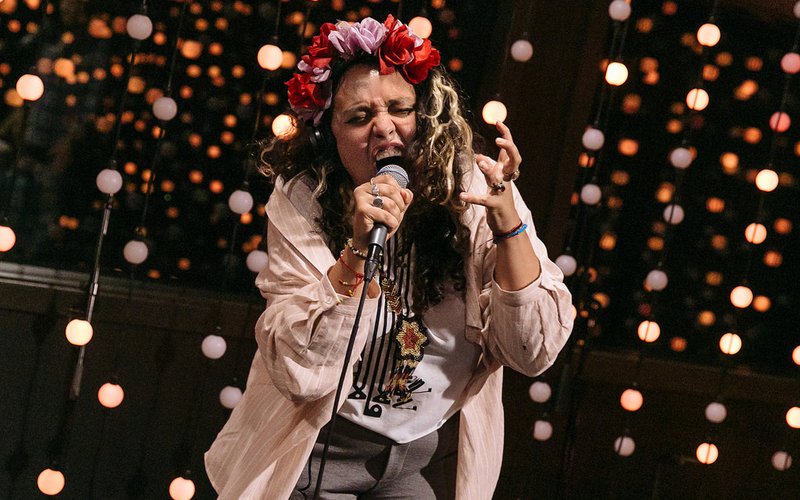
Forty years after The Clash released London Calling and we’re still lamenting the same fears and anxieties. The onus was never on just The Clash to solve the world’s problems, but progress moves slower than the fiery riffs of “Clampdown.”
But London Calling was not inconsequential. Beyond just a musical milestone, the record and the band themselves were a match lighting the fuse. They blew up preconceptions of punk, how to talk about politics in music, and how to use your guitars to start the revolution. Their message opposed racism and fear and emphasized unity and inclusion. Evergreen themes that are still being carried on by artists today, sometimes with guitars but also with MPCs, synthesizers, rhymes, and shouts.
In order to really understand the legacy of a piece of art – music or otherwise – means to follow a throughline from that work to the artists it’s influenced both directly and indirectly. London Calling is an album that seems obviously influential and impactful just off the basis of the topics it traversed and musical boundaries it ignored. There are countless artists you can look at today who are doing the same, whether they’re Clash devotees or not.
Looking at just a few of these artists gives hope for the future. The fight for your rights isn’t over and there are new fights emerging each day. Just one Clash isn’t enough. Whether it’s distorted fervor of D.C. punk or Japanese bands flipping superficiality on its head, we can feel a little bit of London Calling in the world today.
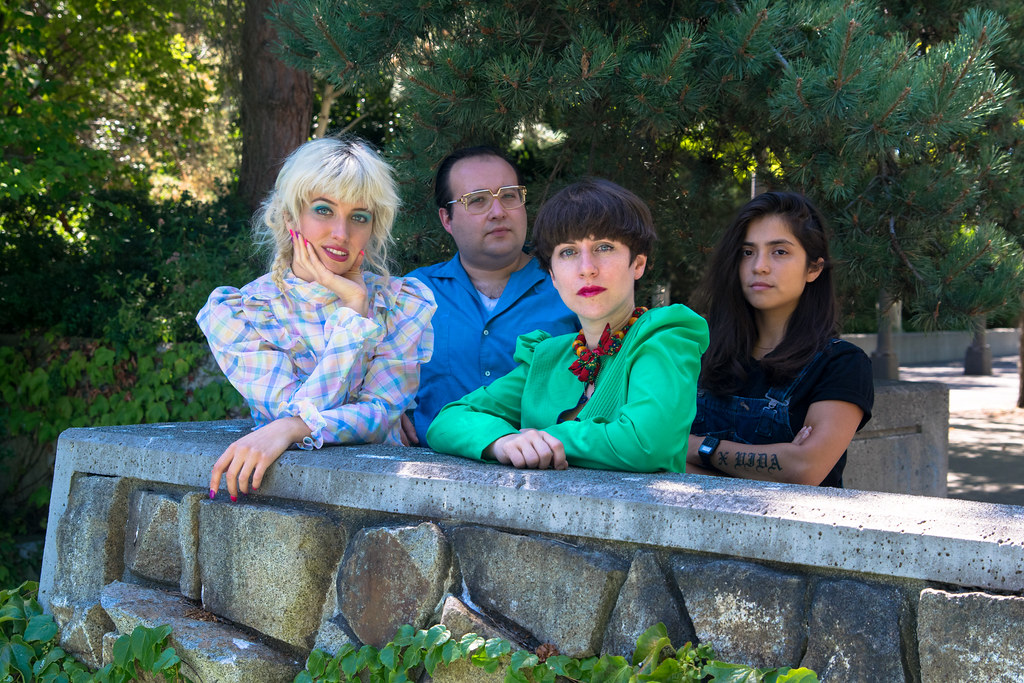
Just a week after the 2017 White House inauguration, Washington D.C. post-punk outfit Priests emerged with their blazing debut LP Nothing Feels Natural. The timing of the release with political unrest and division in the United States only amplified the political messages rooted in the record.
“You want some new brutalism?” the band shouts on the opening track “Appropriate.” “You want something you can write home about. You want something to move away for. A reason to colonize.”
It’s an opening salvo that harkens back to the exposition setting of “London Calling.” Both songs and records echo the times from which they were created, times of strife and uncertainty. Whereas 1979 London was drowning, 2017 D.C. is submerged in a capitalist nightmare. It’s also an homage to the punk legacy that’s occurred in those 40 years, infused with the righteous anger of Priest’s D.C. forefathers like Fugazi and Bad Brains.
And, much like The Clash, Priests are not ones to be boxed in by genre. While Nothing Feels Natural barreled through eardrums with jagged riffs and emphatic, rallying shouts, their upcoming record is shaping up to be a sonic left-turn. The first single and title track from their upcoming record The Seduction of Kansas finds them band embracing electronic elements and synthesizers to reimagine their sound.
Constant musical evolution and progressive politics? What could be more Clash than that?

“A wall is a wall and nothing more at all,” Downtown Boys vocalist Victoria Ruiz shouts on “ A Wall,” the opening track to the band’s 2017 LP Cost Of Living. It’s one of many seething lines filled with righteous dissent on the track, along with “Am I under arrest? (fuck it) / And do I have the right? (fuck it).”
Walls have become ominous symbols of isolation and fear – something that’s been true for generations and still ringing through to today with a still looming debate of a Southern border wall being pushed by the White House. Downtown Boys aren’t going to succumb to it, though. Their music is very much in the vein of The Clash’s “Know Your Rights.” You have the right to not be killed, for food and money, and to free speech. These rights are celebrated in Downtown Boys’ furious punk rock, even going further to extend messages of against homophobia, racism, capitalism, complacency, and the prison system.
Produced by a bona fide anti-fascist punk – Fugazi’s Guy Picciotto – Cost Of Living carries the grit of generations of punk but also the pains and struggles of the disenfranchised. It’s something Ruiz comes by naturally, coming from a family of activists – some of which marched with Cesar Chavez as he protested for farmers to have the right to unionize. Downtown Boys’ music carries on this legacy and urges the listener to follow suit. To stand up for yourself, to fight for your rights, and tell tyrants to fuck off.
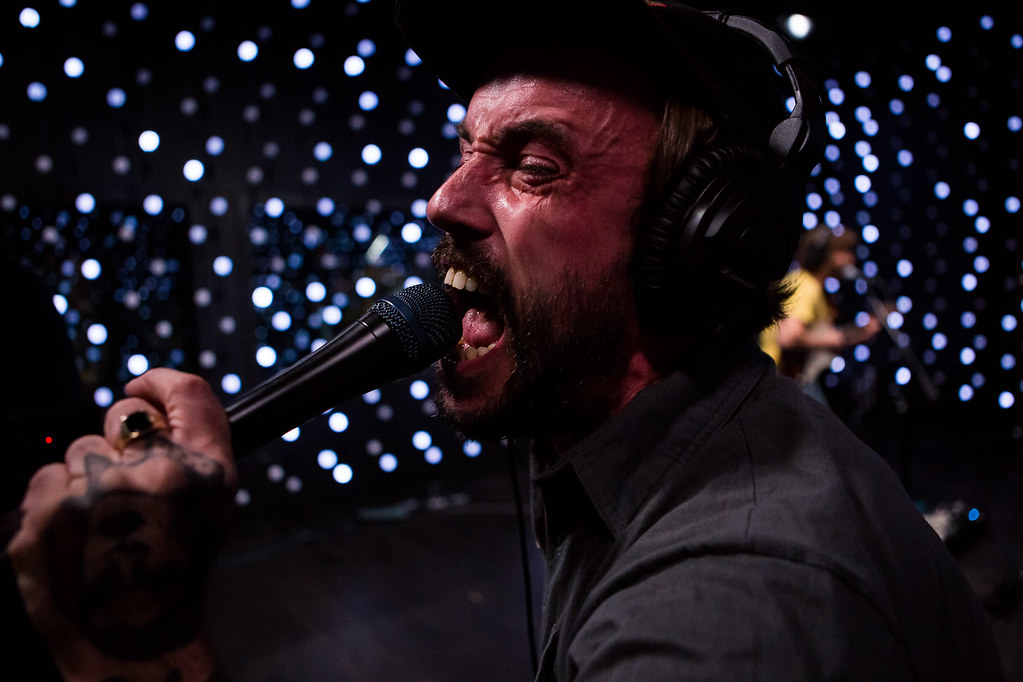
The title of IDLES’ sophomore record, Joy As An Act of Resistance, really says it all. The Bristol punks certainly share some surface-level similarities with The Clash – both making rebellious, confrontational music in the UK – but the connections run deeper than that. We can talk a lot about the themes of The Clash’s music, but there’s also the intent and soul of their music to consider as well.
The Clash were a band steeped in empathy. The reason they’d address issues of intolerance, racism, and inclusion was that it was the right thing to do. No one deserves to be cast aside, even when our leaders seem ambivalent. It’s what’s at the core of much of IDLES’ music – humanizing the plight of others. The single “Danny Nedelko” does this fairly straight up by attaching a name to the immigration debate happening worldwide, but also particularly for the post-Brexit United Kingdom. Nedelko himself is a friend of IDLES, performing in the band Heavy Lungs.
”My blood brother is an immigrant,” lead vocalist Joe Talbot bellows at the beginning of the track. “A beautiful immigrant.”
It’s more than just offering perspective; it’s the sense of urgency underlying in the music that makes IDLES’ music so vital. Loving those around you isn’t always just about showing affection, it’s about taking action. They extend that love inward as well. If you’re trying to start a revolution, you need to show gratitude to yourself. A song like “Television” takes this idea with an aggressive approach, saying, “If someone talked to you the way you do to you, I’d put their teeth through.”
IDLES extend the groundwork laid out by their punk forebearers with electrifying performances and emotional transparency. The fight against corruption wages on and IDLES aren’t backing down or losing heart.
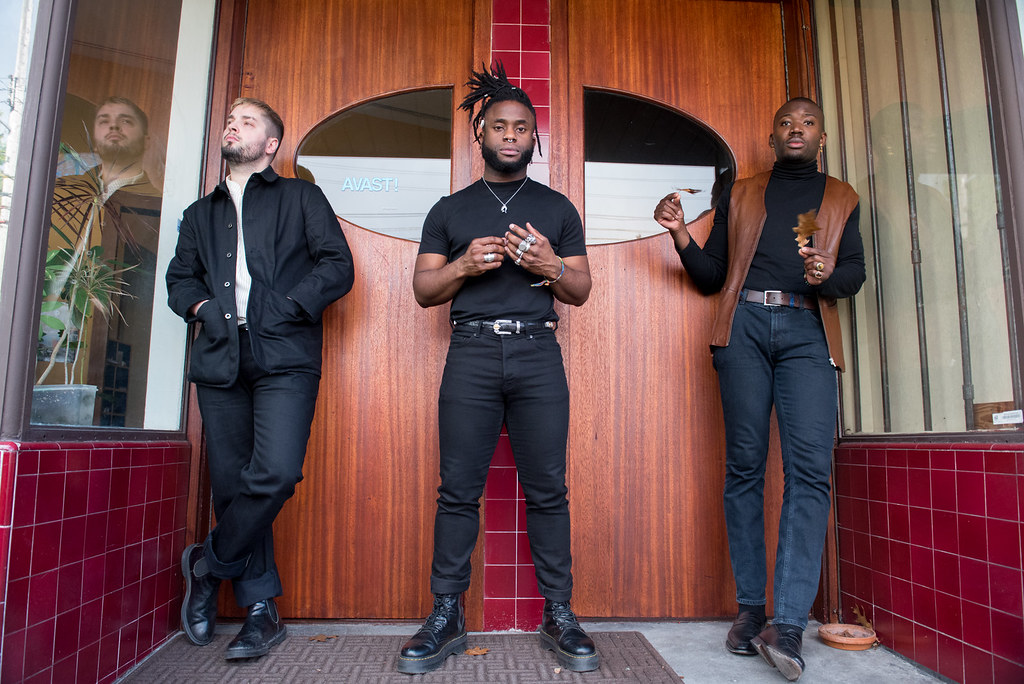
"We don't want to be trapped into one particular genre,” Young Fathers’ Kayus Bankole told Phoenix New Times in 2015. “For us, we don't give a fuck about hip-hop. We don't give a fuck about indie music. We just do us."
Bankole’s description of Young Fathers’ music is about as spot on as you can get. It’s hard to know what to even call it, drawing from so many disparate influences that it coalesces into something uniquely its own. Indie rock, trip hop, hip hop, industrial, dance, and more make cameos in different aspects of their sound but none ever outweighing the other.
While they’ve been a band since 2008, they started to take the world by storm with their 2014 debut LP Dead. The album won the relative newcomers the Mercury Prize, beating out FKA Twigs, Damon Albarn, and Jungle. Their follow-up, White Men Are Black Men Too, continued to push boundaries and stay provocative and informative. The music video for “Old Rock n Roll” is set in Malawi to show the faces that are migrating to the west and came with a message aimed at the refugee crisis and racial preconceptions, as well as the “Britain first” messages that would eventually lead to Brexit.
“Elvis wasn’t the king of rock’n’roll. Kanye played Glastonbury. You can’t keep us in the uuuuurban stations, bestial hip-hop, token crazy militant black people cupboard, under the stairs, poor-doors entrance,” their statement with the video read. “We have keys to the front door. We are black and white.”
They continue, “If we can afford bombs we can afford blankets and a welcome.”
Even on their latest record, Cocoa Sugar, where the band is more introspective than political, their fearlessness shines through. Young Fathers are without borders of thought or genre, much like The Clash but still uniquely their own.
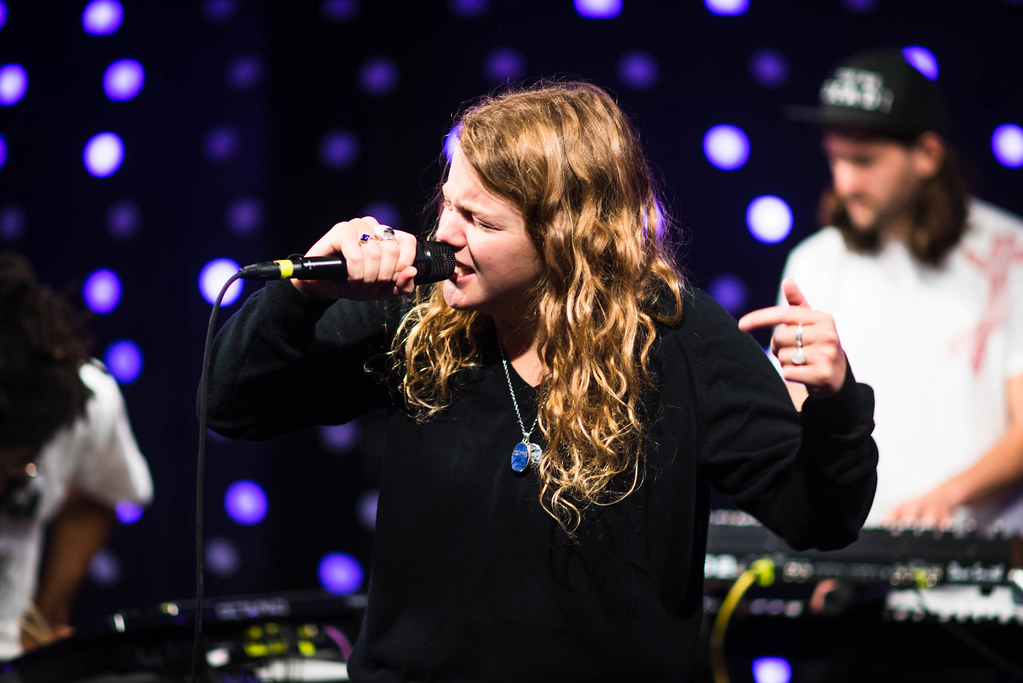
Rapper, poet, and novelist Kate Tempest writes about London with a critical, cynical lens that only comes from a deep affection for the people who live there. An award-winning poet, Tempest articulates herself masterfully regardless of the medium she chooses. Her last album Let Them Eat Chaos included the call-to-arms “Europe is Lost,” in which she proclaims, “Europe is lost, America lost, London lost/Still we are clamouring victory/All that is meaningless rules/We have learned nothing from history.”
At least part of that history she mentions is the same era The Clash wrote about on London Calling. Through biting rhymes and sensational insights, Tempest paints a bleak but realistic picture of the modern age. London Calling was a punk rock shout to wake up and look at the mess flooding up around you. Tempest picks up the mantle to tell the people they’re already underwater and it’s time to swim out and do away with the oppressive oligarchs who hold them down.
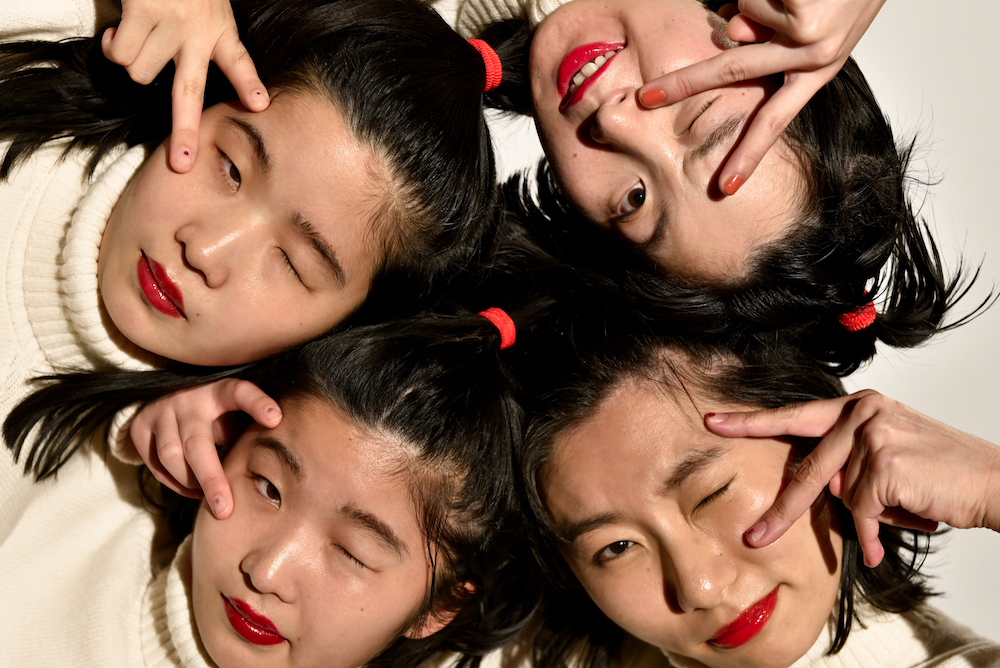
Retaliating against the status quo takes different shapes and tyranny doesn’t always look the same. For Japanese band CHAI, it’s standing up against the idea of “cuteness” – or “kawaii.” It’s an idea that shouldn’t be taken lightly.
“In Japanese society, cute people are the ones that are popular, and cute things are the ones that are hip,” describes keyboardist and vocalist Mana in an interview with Pitchfork. “Cute is a standard, and everything else is ugly. It affected me a lot, because I didn’t feel like I was a part of that standard.”
CHAI combats these societal and beauty standards with a rush of bright, quick, and dazzling punk rock both on their 2017 LP Pink and their upcoming album PUNK. The music is infused with sharp, speedy riffs and sugary hooks that can stay in your head for days. CHAI’s music is undeniably brighter than the bulk of The Clash, but it’d also be revisionist to think that The Clash didn’t push out their message without big, catchy hooks either.
Some of The Clash’s biggest hits like “Rock The Casbah,” “Should I Stay Or Should I Go,” and even “London Calling” double as infectious earworms that you can likely hum just by reading the title. CHAI goes a step further by using this pop songwriting style to infiltrate mainstream ears while pushing a message that rallies against mainstream culture. CHAI believes cuteness is for everyone. Everyone should feel good about themselves and push back against someone who says otherwise. Beauty standards can be another form of oppressive politics, keeping the masses in line with arbitrary definitions that do more harm than good. What’s not punk rock about that?
KEXP is celebrating International Clash Day all day long, both online and on the air; click here to see more KEXP interviews and articles.
Strand of Oaks, Craig Finn of The Hold Steady, The Coathangers, and more talk about how the legendary band impacted their lives
KEXP will travel to London for the 7th Annual International Clash Day, with a full week of live performances celebrating The Clash, the 40th Anniversary of the release of London Calling, and the strength of London’s music scene.
The IDLES lead vocalist talks finding strength in opening himself up after a year of hardships and the desire to be a better person. Tune in to hear them on KEXP Oct. 4 at 9:30 a.m..